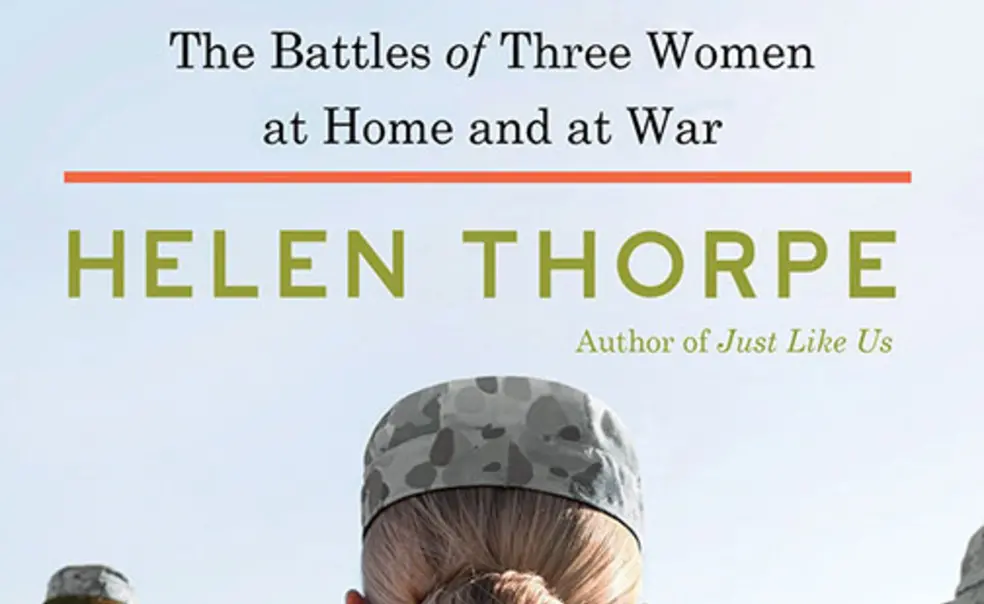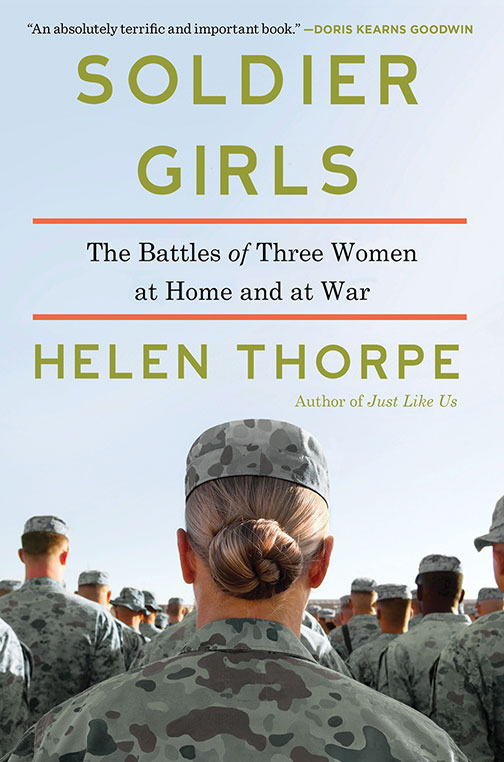The three women at the center of Helen Thorpe ’87’s book had various reasons for enlisting in the Indiana National Guard — from needing the money to seeking adventure — but none anticipated that she would be sent overseas to a war zone. All three served in Afghanistan in 2004 and 2005, and two in Iraq.
Soldier Girls: The Battles of Three Women at Home and at War meticulously captures the tedium, fear, and loneliness of war — and the consequences for the women’s personal lives. Thorpe, a journalist, pored over emails, Facebook posts, letters, and psychological evaluations, and spent years interviewing the women and their families.
Before going to Iraq, Desma trains with an infantry regiment that has about 100 men and only a couple of women. How is she treated?
Most of those men had never served alongside women, and they made it abundantly clear that they would have preferred to keep it that way. When Desma goes for a weapons-qualification test, she is told all four times she takes the test that she has failed. Only later does she learn that she had actually passed all four times. Anytime these women were in an environment where the gender ratio was really skewed, they struggled more.
Michelle gets a pedicure every time she goes to Bagram, Afghanistan’s largest military base, because, you write, she “wanted to hang on to the sense of being a woman, and that was hard to do as a soldier.”
The military they were serving in was used to soldiers being men. Michelle was struck by the fact that her dog tags kept getting snarled up in her bra and were turning her breasts green. Dog tags were definitely designed with men in mind.
Desma leaves her son in the care of her former boyfriend, and her two daughters with a cousin. How does she stay in their lives while she is deployed?
Desma called her children as often as possible, but made certain never to call on the same day of the week, never at the same time of day — they would not worry if they did not hear from her at the appointed hour. After her return, she worries that the two years she spent away have hurt her children. One of her daughters falls two grades behind at school. Her son gets caught robbing a home and beating up the old man who lives there, and is sentenced to 20 years in prison. Desma can’t help but wonder, “Would he have turned to crime if I’d stayed home?”
Desma is driving a truck in a supply convoy to Tikrit when an IED explodes, leaving her with a concussion and post-traumatic stress disorder.
Technically, I don’t think the military would have said she was in a combat role, but a bomb going off? Yeah, I’d call that combat violence.
After their deployments, how do the three women feel about women serving?
The most liberal of them, Michelle, concluded women did not belong in a war zone after watching Desma struggle to be a single mom and a soldier. Desma didn’t take that position at all. She felt it was great that she had the opportunities she’d had. And then you had Debbie, who was like, “Darn! Too bad these changes didn’t come sooner. I could have been a sniper.”
Interview conducted and condensed by Merrell Noden ’78














No responses yet